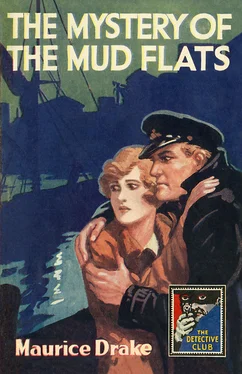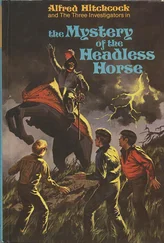‘He’s a chemist. He’s got a professor’s job at Mason College, Birmingham.’
‘He’s a sound man—a worker. He’s had the gold medal of the Royal Society of Arts, is a Felton prizeman and heaps more besides. What on earth can he be doing dabbling in a little trading concern like this? A man with his record could get to the top, if he liked, and yet here he is tinkering at this business with a cub like Willis Cheyne for a manager. He isn’t a fool, yet he behaves like one.’
‘Oh, hang!’ I said. ‘You worry me with your twaddle. Let’s do our work, and draw our pay and live in peace. Go to bed. We start loading potatoes tomorrow at six a.m.’
‘Potatoes!’ he said wearily. ‘They’re shipping potatoes to an agricultural country now. Next time we shall carry windmills in sections, or canal water. They’re short of both in Holland, and naturally can pay big freights on ’em. Good-night, 0 massive-brained ruminant. Good-night.’
I thought potatoes were a funny cargo myself, but I wouldn’t encourage him in his silly ways and so swore I considered it natural they should be imported. ‘There’s Ghent handy,’ I said, as we were squabbling about it on the way up Channel. ‘Ghent and all the other Belgian industrial centres close by. A big population wants food, don’t it?—and industries want deals and clay and coal.’
‘In half cargoes!’ he jerked out; but I had him there, having been thinking about the Kismet myself.
‘That’s because of the tide,’ I said. ‘How could they get deep-laden boats, even of our light draught over those mud-banks at neap tides?’
That shut him up and so ended the discussion for the time being and we got in, discharged our potatoes and ballasted as before. Some of the Kismet’s coal still lay by the warehouse, but not more than ten tons at the outside. The rest was gone. Even Voogdt grudgingly admitted there was nothing unusual to comment upon.
But the evening before we sailed we had a shock. Our bags of potatoes were lying neatly stacked by the wharf, twenty-five tons of ballast were aboard, and the hatches were on, ready for sailing. Having an hour or two to wait for the tide I suggested to Voogdt that we should stroll along the bank to Terneuzen and have a drink before we went. When we got to the canal entrance we had to wait, the lock-gates being open. Right beside us was a German coasting schooner, and I thought I’d air my German a bit and impress Voogdt.
‘Wo gehen sie?’ I said to a boy on deck.
‘Emden. Mit Erdapfeln.’
He used the slang word ‘Erdapfeln’ instead of the more correct ‘Kartoffeln’ and I turned to Voogdt to translate without thinking of the sense of the words. But he needed no translator, it was evident.
‘Potatoes,’ he said under his breath, like one dazed. ‘Potatoes! Hear that?’ He leaned over and spoke to the boy himself.
‘Woher sint sie gekommen?’
‘Sas van Gent.’
The thing had soaked into my thick head by this time and we stared at each other in silent amazement. I was being paid a sovereign a ton to bring potatoes three hundred miles to Terneuzen; whilst Sas van Gent, only ten miles up the canal, was exporting them in bulk to Emden. No explanations could spare that. We forgot the drink we’d come out for, and turned to walk back to the Luck and Charity with our heads in a whirl.
Half-way back I stopped in my stride. ‘I read a yarn once,’ I said, ‘about a man who saw a Government announcement in the papers that the Woods and Forests had oak-trees to sell, and another from the Admiralty to say that they wanted oak timber. So he stepped in and sold England her own property and retired on it.’
Voogdt patted me on the shoulder softly, speaking with exaggerated gentleness, as though to a sick child.
‘Don’t fash yourself, my son,’ he said. ‘This thing is beyond your great brain. ’Tisn’t a fool Government this time. It’s the rules of trade, and demand and supply, and a dozen other things, all being turned upside-down. It’s water flowing up a hill, James, that’s what it is. It’s rank raving lunacy, apparently run at a profit, and that’s impossible. Impossible, I tell you.’
Walking slowly and thinking hard, Cheyne overtook us as we neared the wharf, and asked us into the office for a drink. To my surprise Voogdt, answering him, put on a raw Cockney drawl, and spoke as though he were an illiterate coasting hand.
We sailed for Torquay this time, but conversation languished on the voyage. The more I thought of that German-bound boat the crazier the whole thing seemed, and, think as I would, I couldn’t see a light anywhere, Once or twice I made some sort of suggestion, more in protest against the clashing facts than anything else, but each time Voogdt shut me up sharp.
‘Oh! go and boil your head,’ he said rudely. ‘I’ve been over and under and all round it; and all I can say is that it’s against nature. But you mark my words, Mr James Carthew Hyphen West, if any more funny things like that happen, I shall go slap off my rocker.’
Another cargo of potatoes awaited us at Torquay, and Voogdt nearly danced on the deck when I told him so.
‘I hate being beat. That’s what I’m suffering from,’ he said, half laughing at himself. ‘After all, the explanation’s clear enough. Ward or somebody in the company has money, and Cheyne’s induced ’em to put it in this fool venture. When it’s gone the company will shut shop and Cheyne’ll go to sea again, having had a royal holiday ashore. That’s all. It can’t be anything else Let’s get the spuds aboard I hate doing it I hate waste. But after all we may as well have some unknown fool’s money as anybody else. Here’s my last word about it, skipper; always see you’re paid in advance and lay by against a rainy day.’
There was no difficulty about that. Cheyne was always ready to make an advance whenever I asked him, even when sometimes the money was for my own purposes. We sprung our topmast a month later, and though, strictly speaking, I ought to have paid for repairs myself, Cheyne authorised me to get a new spar at his expense. ‘Get a good stick and don’t waste time about it.’ That was always his cry. ‘Hurry. Hurry. Make quick voyages.’
‘And he’s losing money on every voyage, sure,’ Voogdt said once almost despairingly.
After the second potato trip he wrote to a friend of his in London, asking for particulars of our employers, only to find the so-called company was not registered as a company at all. He showed me the letter.
‘There you are,’ said he. ‘That settles it. They must have got hold of a capitalist mug, and they’re bleeding him. Only—’ He stopped.
‘Only what?’
‘Well, I should have thought a fellow like Cheyne would have opened his sham store in a more amusing place. The Riviera, say. And there’s Ward. Cheyne may be a rogue and a fool, but Ward’s neither, if I’m any judge of a man. What’s he doing in that galley?’
It didn’t worry me that I couldn’t answer his questions—if I can’t understand a thing, I just disregard it and get on with the work; but to him unsatisfied curiosity was like a prickle in his flesh.
However, as time wore on he seemed to be easier in his mind, and after a few trips we’d got the hang of the trade and were just making voyage after voyage without remark. Each voyage was much like the last. We nearly always had light cargoes, and took away as much ballast as we could get in two tides. We always traded in the English Channel, and nearly always to different ports. In fact the only port we called at twice was Dartmouth, and on our second visit, three months after the first, we lay at Kingswear, on the other side of the river. In those three months we’d made about ten journeys: to Looe, Penzance, Falmouth, Fowey, Teignmouth, Plymouth, Newhaven, Southampton and Kingsbridge. By that time we were so accustomed to the round that even Voogdt accepted each new order without remark.
Читать дальше












